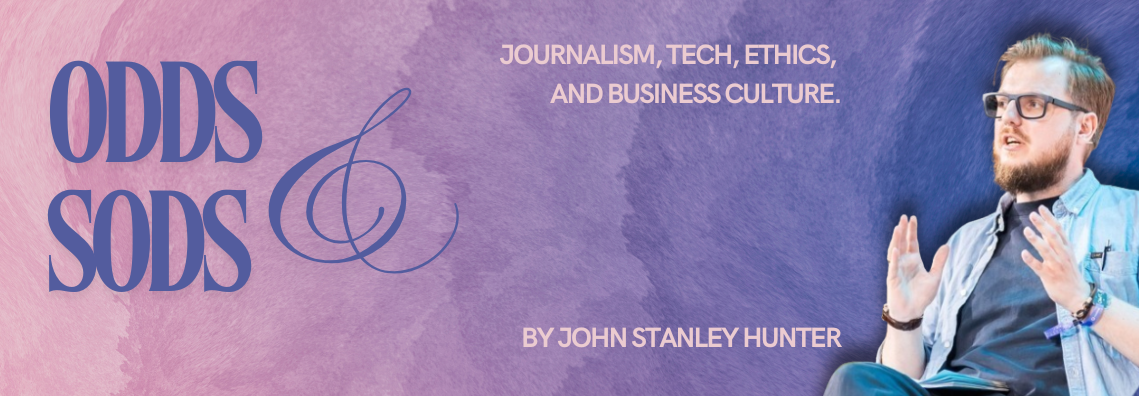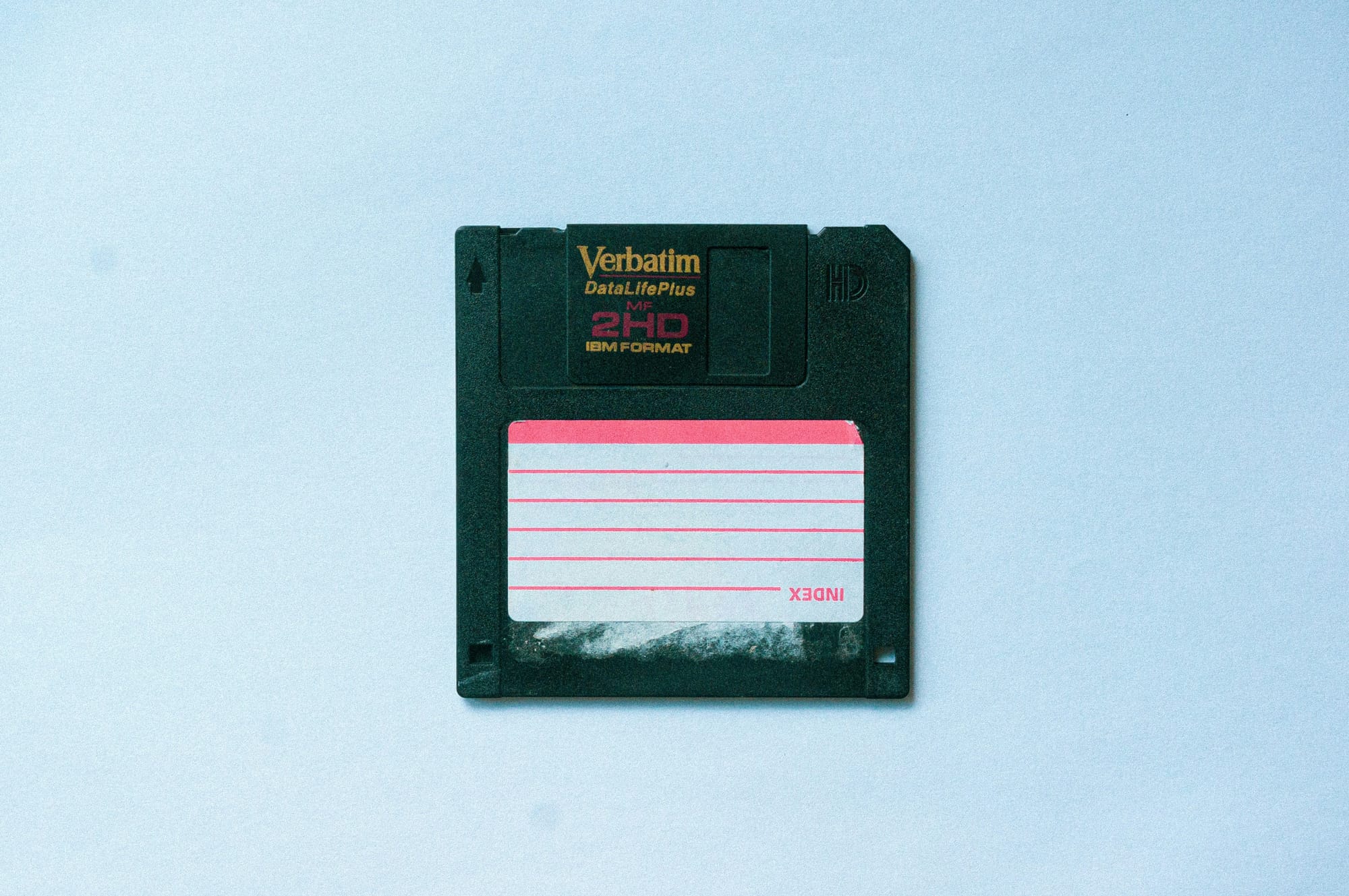Hard Copies for Hard Times

Today, I will ask you not just to read what I have to say but also to do something, to take action: Print it all out. Not my newsletter, but everything that we want for posterity. Save what's worth saving—before it's too late.
What do I mean by that? I'm glad you asked. Jimmy Kimmel, a late-night television host whose job, ostensibly, is to joke, was not so long ago a tolerated jester on the public airwaves. Last week, that changed. Kimmel's show was "suspended indefinitely," a phrase as coldly bureaucratic as anything devised by old Soviet censors. Why? Because Kimmel spoke about the killing of a right-wing activist, and influential people didn't like his tone. In a country that exalts the "free speech" written into its founding creed, there are new, invisible lines one must not cross.
Of course, it's easy to sneer at television celebrities. But when their platforms are yanked from under them with a snap, the rest of us must not flinch. If the jesters can be silenced, how long will it be before the thinkers go, too?
Let this suspension be our warning. If they can wipe out a Kimmel, a Fallon, or a Colbert, what, or who, is safe online anymore? There are, of course, many more things happening to prompt my request, none were as widely discussed as Kimmel's cancellation, though. So this example felt more fitting.
If a nation—or a civilisation—can regurgitate its barbarism so easily, what hope is there that the delicate spell of knowledge, science, honest debate and inconvenient fact will survive in such perilous company? A digital library can be erased in a click, as easily as a life in a cell.
In days gone by, when tyrants wished to strike at the heart of reason, they burned books. Torched them by the thousand, flinging poetry and philosophy into great bonfires. The heat of such hatred warped more than just pages. It warped the future, too.
Now, the new burnings are invisible. A show is "pre-empted." A website is "de-platformed." A research grant is "withdrawn." All so tidy, so technical, so plausible. Even the word "cancel" has been domesticated—an innocuous button pressed by unseen hands.
Just months ago, America's new-old President withdrew policies requiring that the government make choices "based on evidence." University leaders are stunned. Scientists are learning to whisper. Biologists, gender theorists, and climate researchers are being cast as heretics in a digital inquisition. And those precious, glowing archives—the ones that hold our best guesses at how the world works—remain perilously easy to delete.
Imagine, for a second, the internet goes out. The digital cloud is not a cloud at all, but a clanking vault of hard drives and servers, humming in dull sheds, owned by enormous companies whose business is not truth but profit.
What if those profits are threatened? What if truth itself becomes inconvenient? Then knowledge becomes, at best, a renewable commodity—reshaped, downranked, or purged entirely.
History is studded with examples. In 1930s Germany, the works of Albert Einstein, Kurt Tucholsky, Erich Kästner, Franz Kafka, the Mann brothers and Sigmund Freud—their crime being Jewish, and inconvenient—were banned by law, their books seized and burned by the ton. In Soviet Russia, a whole class of scientists, the geneticists, were erased, their "heretical" books left to rot as famine spread and ideology ruled. In Cambodia under Pol Pot, to wear spectacles—a sign of reading—became a death sentence.
Are we so sure it cannot happen here or now just because the threats are digital, not flame-lit? With everything being digital, wiping out knowledge is easier than ever.
Today’s youth on TikTok and other social platforms have already adapted to the App's censorship by speaking in code—a phenomenon sometimes called “algospeak”—to dodge the ever-tightening net of automated censorship. Words associated with sensitive topics are routinely banned or suppressed by algorithms, so young people have crafted new vocabularies to talk about them: “unalive” replaces “kill” or “suicide,” “grape” stands in for “rape,” "corn" means "porn," and “PDF” is used to describe pedophiles. These terms are constantly evolving, as platforms catch on and update what their algorithms flag, pushing youth to keep innovating just to have honest conversations.
At this late hour, the prescription is literal: print it out. Yes—use paper, ink, the tangible. A computer file is brittle; a book will rot, eventually, but not for ages, and only by inches. Once you have printed something, it cannot be changed by remote decree, nor yanked from a server in California or a ministry in Beijing.

Print the biology before some political boss edits away inconvenient chromosomes. Print the gender studies before the word itself is made unmentionable. Print the climate science, before hurricanes and wildfires are explained as "God's will," and everything else is scrubbed from the record. Print the antifascists, the philosophers, the poets, the hackers and the sceptics, before their digital signatures are "pre-empted" into oblivion.
This is not about nostalgia. Bookishness is not the point, nor technophobia the aim. You need not take this as hysteria. Even as recently as this spring, universities were shuttered or threatened for hosting the wrong speakers. Entire disciplines—gender studies, critical race theory, environmental science—have been vilified by officials who treat thinking as a threat. Teachers in the U.S. are being surveilled and attacked for videos, social media, and syllabi that fail the latest litmus test.
Consider the anti-LGBTQ bills cropping up like mildew, seeking to erase entire lines of honest research and replace them with "approved facts." Try finding some books in Tennessee or Florida that mention, let alone explain, the basics of systemic racism, or the details of how the climate works.
Already, Wikipedia's entries on "gender" are being rewritten, courts rule on what science gets taught, and libraries are shamed for the titles upon their shelves. Here's another request: become a Wikipedian, write and edit on topics you know well. Contribute to free, accessible knowledge. Here's how:
Allow a brief diversion. George Orwell, when fighting for the Republic in Spain, noticed something odd: newspapers on both sides simply invented news to fit the ideology. He did not trust any single source, nor even his own memory: instead, he took a pencil, made notes, and smuggled them out by hand. Why? Because truth, once surrendered to propaganda, is almost impossible to reconstruct after the fact. It took decades for historians to untangle the snarl of lies. Even today, much is lost.
Now, imagine if all of Orwell's notes had existed only on blogs, hosted by companies that—at a whiff of government pressure—could have deleted everything in seconds.
The temptation, in such moments, is to shrug: "What can one do?" Orwell knew better. So, perhaps, should we.
Some may mock the suggestion: "Print out the internet? That's madness." Let them sneer. A library is madness, too, if you think about it: a collection of strange symbols on dead trees. But history shows otherwise. The world's most advanced civilisations have repeatedly relied on physical stores of knowledge when the tides turned against them.
Consider the Vatican, whose secret corridors hid banned heresies. Consider China, where the burning of the ancient libraries tore knowledge from the world for centuries. Consider the Jewish scholars of medieval Europe, who memorised—then wrote—what their would-be executioners destroyed. Or indeed, the monks in Ireland who kept learning alive while warlords painted the Dark Ages in blood.
We are not so different today, except that our monasteries are now "datacenters," gigantic greenhouses sprouting only as long as the power flows and the politics allow.
What should you print? Start with public science. The great repositories—arXiv, NASA's site, open-access journals—should be raided, page by page, until files are folders and books. Be the judge of what you would want saved in a world without internet access. If you have published, print your own; if you have learned, print what taught you about gender, about biology, about the climate crisis. Think of it as a gift for the children in your proximity.
Include the texts being scrubbed—queer studies, antifascism, the gritty stories of those who fought for civil rights. Print the syllabi and the blogs, the open courses and the essays. Do it now, before someone else "pre-empts" the lot.
Every generation has its delusions. Ours, perhaps, is that the future is guaranteed—that what is online is safe, eternal, "backed up" in some celestial mainframe. But as recent times show, nothing is safe. Not the comedian, not the scholar, not the humble truth.
You may never be called on to save a life. But every one of us is now called to save knowledge.
Print it.
History will not forgive those who fail to act, but it may just remember those with the stubborn courage to save the pages.

